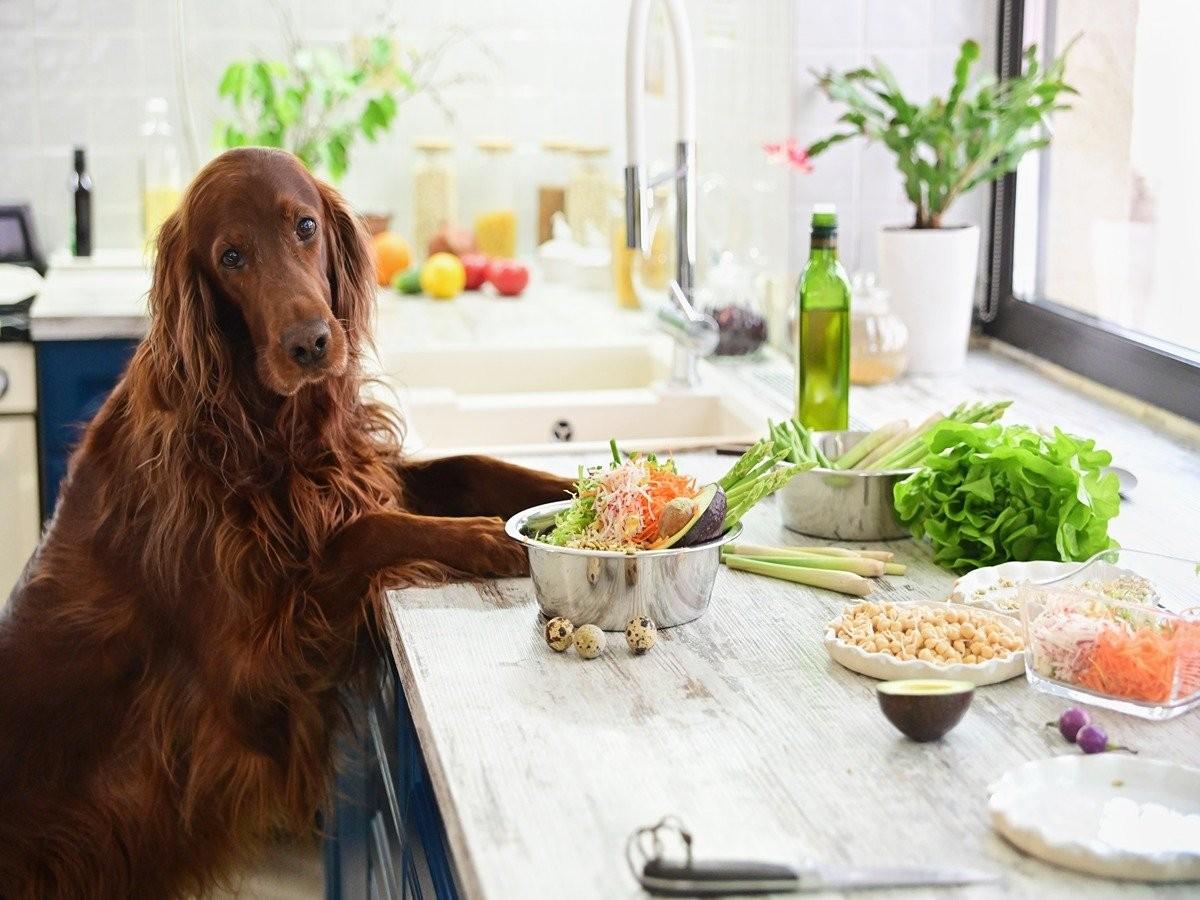While dogs are primarily carnivores, incorporating dog-friendly vegetables into their diet can offer a wealth of health benefits. But with so many vegetables out there, it's natural to wonder, "Can dogs eat vegetables of all kinds?" or "Which vegetables are safe for dogs?"
The answer is a bit nuanced. While many vegetables can be a healthy and delicious addition to your pup's meals, some are toxic and should be avoided. Let's explore the benefits of vegetables for dogs, delve into a list of safe and unsafe options, and answer some common questions to ensure your furry friend enjoys a nutritious and balanced diet.
Benefits of Vegetables for Dogs
Including dog-friendly vegetables in your dog's diet offers a variety of benefits:
Increased nutrient intake: Vegetables provide vitamins, minerals, and fiber that may not be present in sufficient quantities in regular dog food.
Weight management: Vegetables are low in calories and fat, making them a great option for overweight or senior dogs.
Improved digestion: The fiber in vegetables can aid digestion and promote gut health.
Dental health: Crunchy vegetables like carrots can help clean your dog's teeth.
Mental stimulation: Offering a variety of textures and flavors can keep your dog engaged during mealtime.
What Vegetables are Safe for Dogs to Eat?
Here's a list of some common vegetables that are safe for dogs to eat in moderation:
Artichoke: Cooked artichokes are a good source of fiber and vitamins for dogs. However, be sure to remove the tough outer leaves and the choke before feeding them to your dog.
Asparagus: Steamed or roasted asparagus is a healthy treat for dogs. However, some dogs may find asparagus difficult to digest, so start with a small amount and monitor your dog's reaction.
Beets: Cooked beets are a good source of fiber and essential vitamins for dogs. Beets can also stain your dog's fur, so be aware of this before feeding them.
Bell peppers: Rich in vitamins A, C, and B6, bell peppers are a healthy and crunchy treat.
Broccoli: Packed with vitamins C and K, broccoli florets can be a great addition to your dog's meal. However, avoid the stalks, which can cause digestive problems.
Brussels sprouts: Steamed or roasted Brussels sprouts are a good source of fiber and vitamin K.
Cabbage: Cooked or shredded cabbage can be a healthy addition to your dog's diet.
Carrots: A classic dog treat, carrots are a natural source of beta-carotene, which is beneficial for eye health.
Cauliflower: Cooked cauliflower is a good source of fiber and vitamin C for dogs.
Celery: Low in calories and fat, celery is a refreshing snack for dogs.
Cucumber: Sliced cucumber is a healthy and hydrating treat for dogs.
Edamame: Shelled, cooked edamame is a good source of protein and fiber for dogs. However, edamame pods can be a choking hazard, so be sure to remove them before feeding them to your dog.
Eggplant: Cooked eggplant in moderation is safe for dogs. However, raw eggplant can cause digestive upset.
Green beans: A good source of fiber and vitamins A and C, green beans are a popular choice for dog treats.
Ginger: A small amount of ginger can be beneficial for dogs with nausea or stomach upset. However, too much ginger can cause stomach irritation.
Lettuce: While not a source of significant nutrients, a small amount of iceberg lettuce is safe for dogs. Avoid romaine lettuce, which can cause digestive problems.
Peas: Shelled peas are full of vitamins and minerals and can be a healthy snack for dogs.
Potatoes: Cooked or mashed potatoes are safe for dogs in moderation. However, avoid green potatoes or potato skins, which can be toxic.
Radishes: In small quantities, radishes are a safe and crunchy treat for dogs.
Spinach: A superfood packed with vitamins and minerals, spinach should be fed in moderation due to oxalic acid content.
Squash: Cooked squash is a great source of vitamins and fiber for dogs.
Sweet potatoes: Baked or roasted sweet potatoes are a delicious and nutritious treat rich in vitamins and fiber.
Tomatoes: Can dogs eat tomatoes? Ripe tomatoes are safe for dogs to eat in moderation. However, the green stems and leaves of tomato plants contain solanine, which is toxic to dogs.
Zucchini: Sliced or shredded zucchini is a safe and refreshing veggie for dogs.
Remember: Always introduce new vegetables slowly and in small quantities to monitor your dog's individual tolerance.
What Foods Can Dogs Not Eat?
While many vegetables are safe for dogs, some can be toxic and should be avoided:
When in doubt, always consult your veterinarian before feeding your dog any new food, including vegetables.
Can Dogs Have All Vegetables?
No, not all vegetables are safe for dogs. Some, like onions, garlic, leeks, avocados, grapes, raisins, and mushrooms, are toxic and should never be fed to your dog. Always research a vegetable before offering it to your pup and consult your veterinarian if you have any concerns.
Expert Insights From Spot
While sharing healthy snacks with our pets can be enjoyable, pet parents should keep in mind that sometimes, eating human food can upset a pet's stomach. Spot's internal data shows that on average, pet insurance claims for dietary indiscretions cost $642*. Being mindful of what treats we share with our pets can help keep them healthy while helping pet parents avoid unnecessary vet bills.
Conclusion
So, can dogs eat vegetables? Yes, many vegetables can be a fantastic addition to your dog's diet, offering essential nutrients and health benefits. However, it's crucial to choose safe vegetables for dogs and avoid toxic vegetables for dogs. Remember, moderation is key, and always prioritize veterinarian-approved dog food as the foundation of your pet's nutrition.
If you're unsure about a specific vegetable or your dog's dietary needs, consult your veterinarian for personalized advice. By making informed choices and introducing vegetables gradually, you can ensure your furry friend enjoys a healthy and happy life.

Mostly a tech person, always a pet person. I am dedicated to improving the lives of pets and their humans with technology. Off-duty, I enjoy writing about the misbehaving of computer programs and my two Aussiedoodles, Calvin and Hobbes.
*Jan 2019 to Aug 2024 Spot Pet Insurance Services, LLC claims data.
Laderer, Ashley. "11 dog-safe vegetables that have benefits for your pup’s health." Business Insider, 10 Mar. 2022, https://www.businessinsider.com/guides/pets/what-vegetables-can-dogs-eat.
"What fruit and vegetables can dogs eat?" Blue Cross, 27 Feb 2024, https://www.bluecross.org.uk/advice/dog/can-dogs-eat-apples-grapes-potatoes-and-other-fruit-and-veg.
"Toxic Food for Dogs," BatterSea, 18 Sep. 2025, https://www.battersea.org.uk/pet-advice/dog-care-advice/toxic-food-dogs.
The information presented in this article is for educational and informational purposes only and does not constitute or substitute for the advice of your veterinarian.












